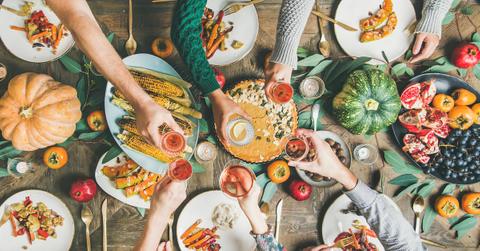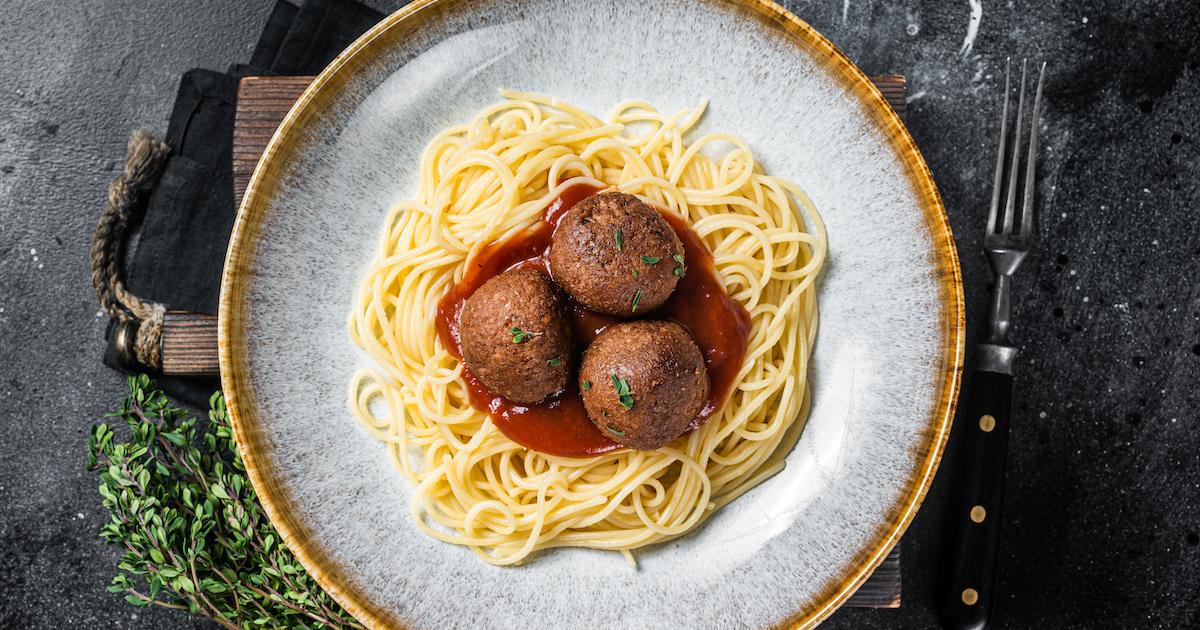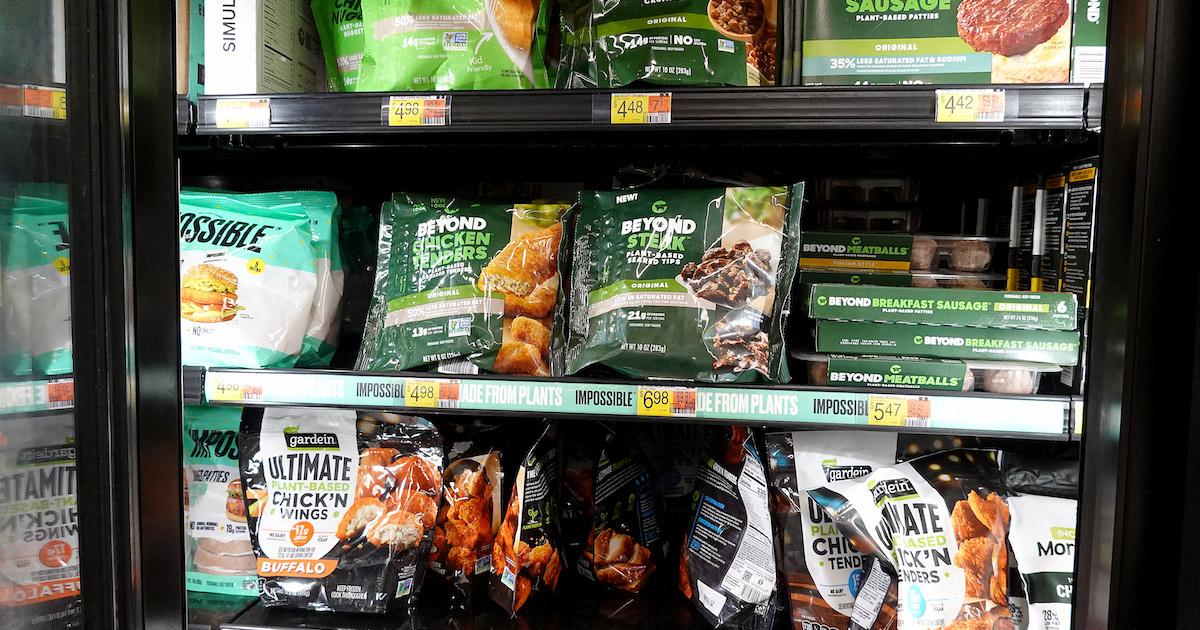Transitioning to a Plant-Based Diet: Tips, Resources, and More for Trying Veganism
Here are a few tips to make the transition easier.
Updated June 27 2023, 12:51 p.m. ET

People have been eating a plant-based diet for thousands of years, but the lifestyle has exploded and become more mainstream over the past decade. And thanks to innovative plant-based alternatives for meat, dairy, and eggs, eating vegan or plant-based is easier than ever these days.
Eating a vegan diet is one of the best things we as humans can do for animals, for the planet, and for our personal health. So if you’re interested in switching to a plant-based lifestyle, read on for some of our best tips on making the transition easy, plus answers to every question you may have about eating plant-based.
What is a plant-based diet?
A plant-based diet is one that focuses on eating plant foods, and excludes animal products such as meat, dairy, and eggs. On a plant-based diet, there are so many foods you can eat, including fruits, vegetables, mushrooms, beans, lentils, nuts, seeds, and grains.
If you’re less concerned with eating whole foods, and more focused on eliminating animal products, you can also eat things like bread, pasta, chocolate, potato chips, popcorn, and oil on a plant-based diet.

Spaghetti with meatless meatballs and tomato sauce.
Is a plant-based diet vegan?
A plant-based diet is essentially the portion of a vegan lifestyle that applies to food. Someone who is plant-based mainly just follows the diet portion of veganism by eliminating animal-based meat, dairy, and eggs from their diet, and often focuses on eating whole foods as much as possible.
In addition to not eating any animal products, someone living a vegan lifestyle typically does not participate in any other behavior that harms or exploits animals, such as buying clothes made from leather, wool, fur, or silk, or using cosmetics that were tested on animals.
Additionally, a vegan will not eat honey, gelatin, lanolin, or other animal byproducts, but someone on a plant-based diet may not mind those, and only focus on only eliminating meat, dairy, and eggs. It’s all a spectrum, and any steps you take to consume less animals is a positive thing all-around.
How to switch to a plant-based diet:
If you’re interested in switching to a plant-based lifestyle, there are endless different approaches to transitioning your diet to one filled with more plants. Below, we've compiled a few different steps and approaches that can help make the process enjoyable, easy, and affordable. Keep in mind that you're not meant to employ every tip on the following list — just try whatever technique calls out to you.
Ask yourself: What is my motivation?
The three most common motivations for eating more plants are: the animals, the environment, and personal health. It can be helpful to do a little more research about how eating animal products affects the environment, how a plant-based diet can reverse a variety of illnesses, and about the cruelty behind the animal agriculture industry. Once I learned about the unnatural and inhumane treatment of animals on factory farms (not to mention, how factory farming is bad for humans as well as animals), I no longer wanted to support it with my dollar.
Basically, if you are steadfast in your “why,” it will be easy to eat plant-based. A great way to do this research is by watching documentaries.
Watch vegan documentaries or YouTube videos.
So many documentaries about the vegan lifestyle are available to watch on Netflix or other streaming sites. If you want to learn more about how eating animal products affects animals, check out Earthlings or Dominion; to see the effect of animal agriculture on the environment, check out Cowspiracy; and to learn more about how animal products can affect your health, watch What the Health or Forks Over Knives.
There are also entertaining educational videos on YouTube, such as Gary Yourofsky’s Best Speech You Will Ever Hear, James Wildman’s 101 Reasons to Go Vegan, and Erin Janus' Dairy Is Scary: The Industry Explained in 5 Minutes.
Start with one meal a day.
Diving into a plant-based diet overnight is certainly possible — but for most people, it’s more sustainable to make changes slow and steady. A great way to get started is by eating one vegan meal every day, such as breakfast. Once you’ve nailed mornings, move onto vegan lunch, and so on.
Replace one thing at a time.
Another technique is transitioning away from one animal product each week (or every two weeks, or every month, or whatever time frame works for you). Every Monday, try replacing one animal product in your diet with an alternative. But instead of thinking “I’m going to stop eating eggs this week,” think, “I’m going to make tofu scramble, or another vegan egg recipe, or try the Just Egg this week.”
Focus on what you're adding to your diet.
Instead of having the mindset that you’re not eating meat, dairy, and eggs, try taking on the mindset of, “Look at all these things I can eat!” Before I went vegan, I thought eating plant-based would be too restrictive, since I would have to cut foods out of my diet. But when I focused on all the great new foods and dishes I could try, I soon found that transitioning to veganism actually expanded my palette. I never feel restricted, because there are thousands of foods I can eat without hurting any animals.

Treat yourself to a meal at a great vegan restaurant.
If there is a vegan restaurant in your area, treat yourself to a decadent meal to give yourself a taste of how good plant-based food can be. And if you don’t live near a great restaurant with vegan options, so many fast food and fast casual chains have the Beyond Burger or Impossible Burger these days, such as Burger King, Carl’s Jr., Taco Bell, and Chipotle.
Try cooking more vegan meals.
Instagram, Pinterest, and YouTube are filled with vegan recipe developers who have endless free recipes to help make the transition easier. You can also buy or check out a vegan cookbook from your local library. Cooking new, unique recipes will help make your transition fun and exciting!
Sign up for a plant-based meal kit.
If you feel lost in the kitchen, consider trying a week or two of a meal delivery kit, such as Purple Carrot, or vegan meal plans from Sun Basket or Hungry Root. Unfortunately, most meal kits come with plastic packaging that would make anyone on a zero-waste journey shudder. However, eating vegan is the lowest-impact diet on the planet, so if you think a meal kit would aid in your transition, go for it.
Overall, don't be too hard on yourself.
If you accidentally eat an animal product, don’t sweat it — just move on and continue trying your best. The same goes for when you purposely eat an animal product, even though you are trying to eliminate them from your diet. Don’t let one mistake cause you to give up — forgive yourself, spend some time thinking on your “why,” and press on.
Is a plant-based diet healthy?
According to the American Dietetic Association, well-planned vegan and vegetarian diets are “appropriate for individuals during all stages of the life cycle, including pregnancy, lactation, infancy, childhood, and adolescence, and for athletes.”
You can get every nutrient your body needs on a vegan diet, although doctors always recommend supplementing the essential nutrient B12, which you can do through vitamins or foods fortified with B12. Animals do not naturally produce B12 (bacteria in the soil actually produces it); instead, livestock are are supplemented with B12, and the nutrient then carries over to the humans who eat animal products.
Is a plant-based diet good for diabetes or heart disease?
Plant-based diets can also reverse chronic diseases like heart disease, type 2 diabetes, and high blood pressure; not to mention, eliminating animal products from your diet can help reduce your risk of the aforementioned diseases; prevent cancer; and clear up things like digestive issues and acne. All of these effects can be even greater for those eating a whole food plant-based diet.
What is a whole food plant-based diet?
In a complete 180 from Burger King, there’s the whole food plant-based diet, which focuses on eating whole foods such as fruits, vegetables, grains, legumes, nuts, and seeds, and limits things like sugar, oil, and processed foods. A whole food plant-based diet can be an effective and healthy way to prevent or reverse disease and lose weight.
Is a plant-based diet better for the environment?
A major 2018 study by the University of Oxford found that eliminating animal products from your diet is the best way to improve your environmental footprint.
“A vegan diet is probably the single biggest way to reduce your impact on planet Earth, not just greenhouse gases, but global acidification, eutrophication, land use and water use,” Joseph Poore, lead researcher on a study, told The Guardian. “It is far bigger than cutting down on your flights or buying an electric car.”
This article, originally published on Aug. 6, 2019, has been updated.
If this news has you feeling inspired to reduce your environmental impact, check out our stories about living a zero-waste lifestyle, going plant-based, and living more sustainably overall.